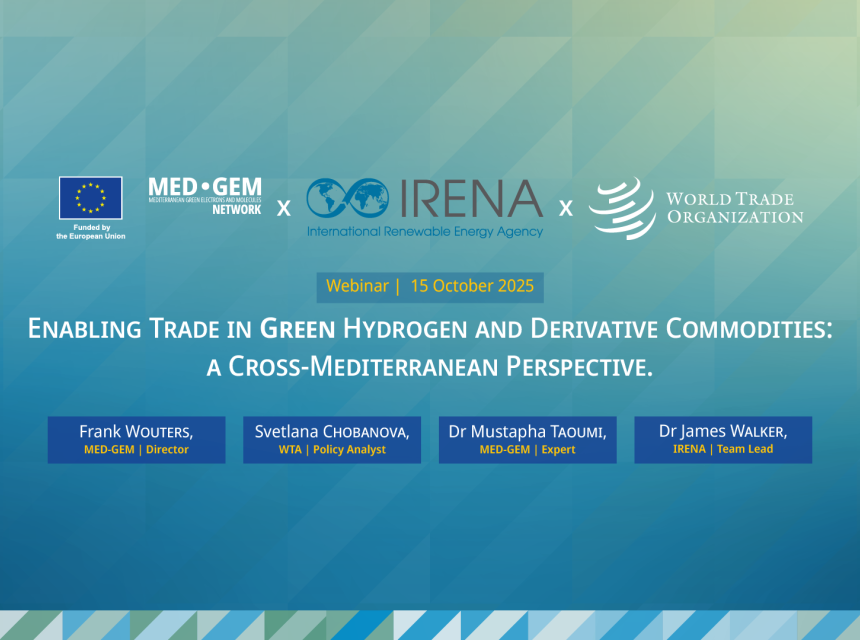MED-GEM Network and Partners highlight Mediterranean’s role in Green Hydrogen trade
IRENA - WTO - MED-GEM Insights Webinar | 15 October 2025
On 15 October 2025, the EU-funded MED•GEM Network, in partnership with the International Renewable Energy Agency (IRENA) and the World Trade Organization (WTO), co-hosted a high-level Insights Webinar entitled
“Enabling Trade in Green Hydrogen and Derivative Commodities:
A Cross-Mediterranean Perspective.”
The event brought together international and regional experts to discuss the enabling conditions required for the development of global hydrogen markets and the Mediterranean’s pivotal role in advancing clean energy trade between Europe and its Southern partners.
More than 140 participants joined the session, moderated by Karan Kochhar from IRENA’s Innovation and Technology Centre in Bonn.
Opening Remarks
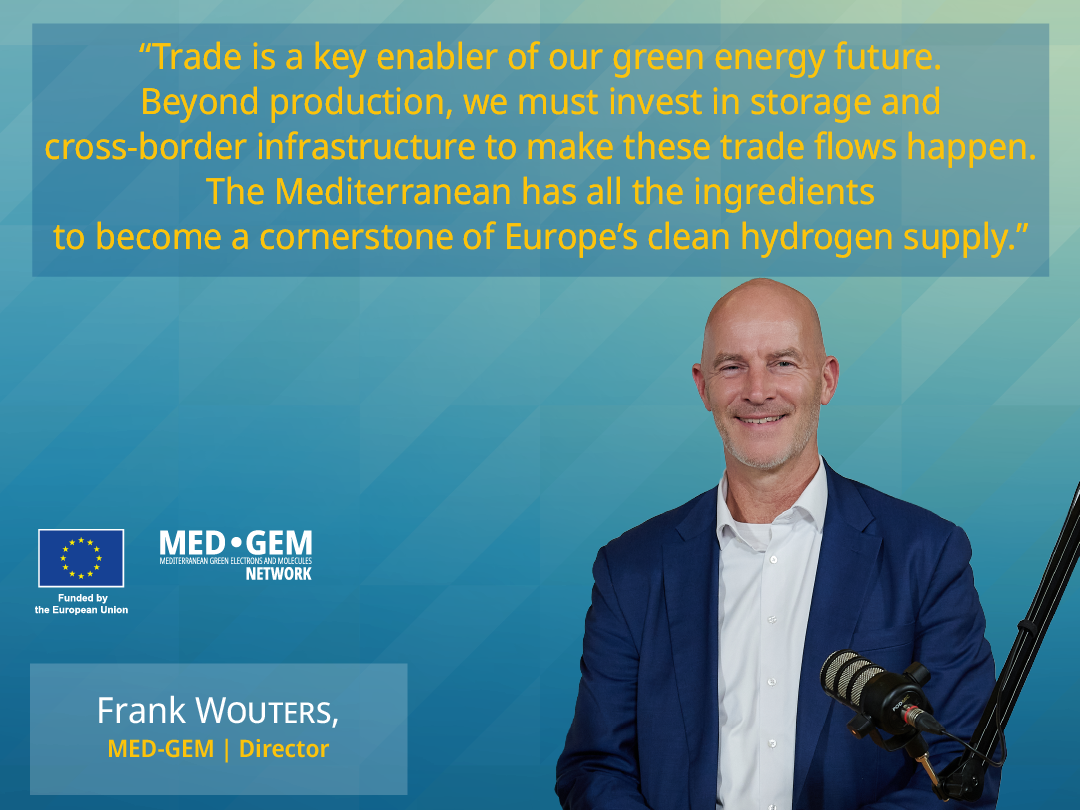
Frank Wouters, Director of the MED•GEM Network, opened the webinar by underlining the importance of trade as a driver of future energy cooperation between Europe and the Southern Mediterranean:
“Trade is a key enabler of our green energy future. Beyond production, we must invest in storage and cross-border infrastructure to make these trade flows happen. The Mediterranean has all the ingredients to become a cornerstone of Europe’s clean hydrogen supply.”
He emphasized that achieving a net-zero energy system by 2050 will require over USD 9 trillion in new storage investments, including pipelines, ports, and storage facilities, highlighting the essential role of cross-Mediterranean partnerships in delivering this infrastructure.
Global Outlook: IRENA’s Perspective
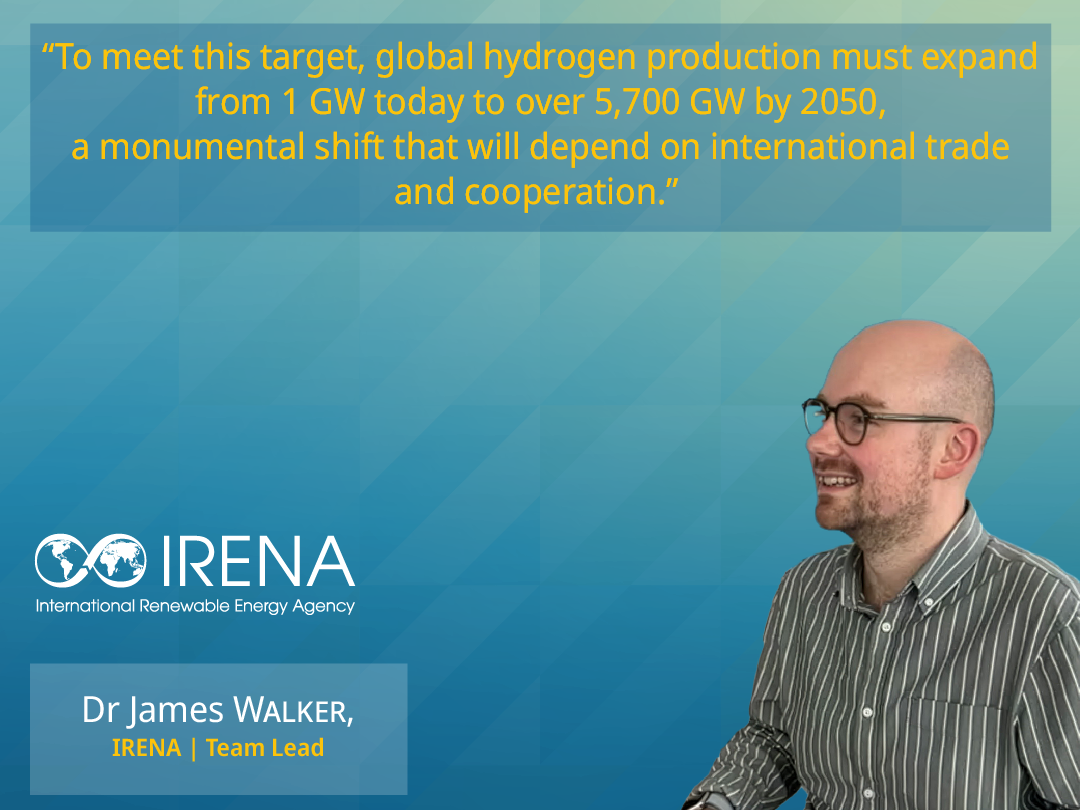
James Walker, Team Lead for Renewable Gases at IRENA, provided a global overview of the evolving hydrogen economy.
According to IRENA’s World Energy Transition Outlook 2024, green hydrogen and e-fuels could represent up to 14% of global final energy consumption by 2050, particularly in hard-to-abate sectors such as shipping, aviation, steel, and chemicals.
"To meet this target, global hydrogen production must expand from 1 GW today to over 5,700 GW by 2050, a monumental shift that will depend on international trade and cooperation." said Walker.
He presented IRENA’s modeling of potential global trade flows, showing the Southern Mediterranean and North Africa as emerging renewable energy superpowers, well-positioned to export low-cost hydrogen and derivatives to Europe through new pipelines and shipping routes.
Trade Policy and Certification: WTO Insights
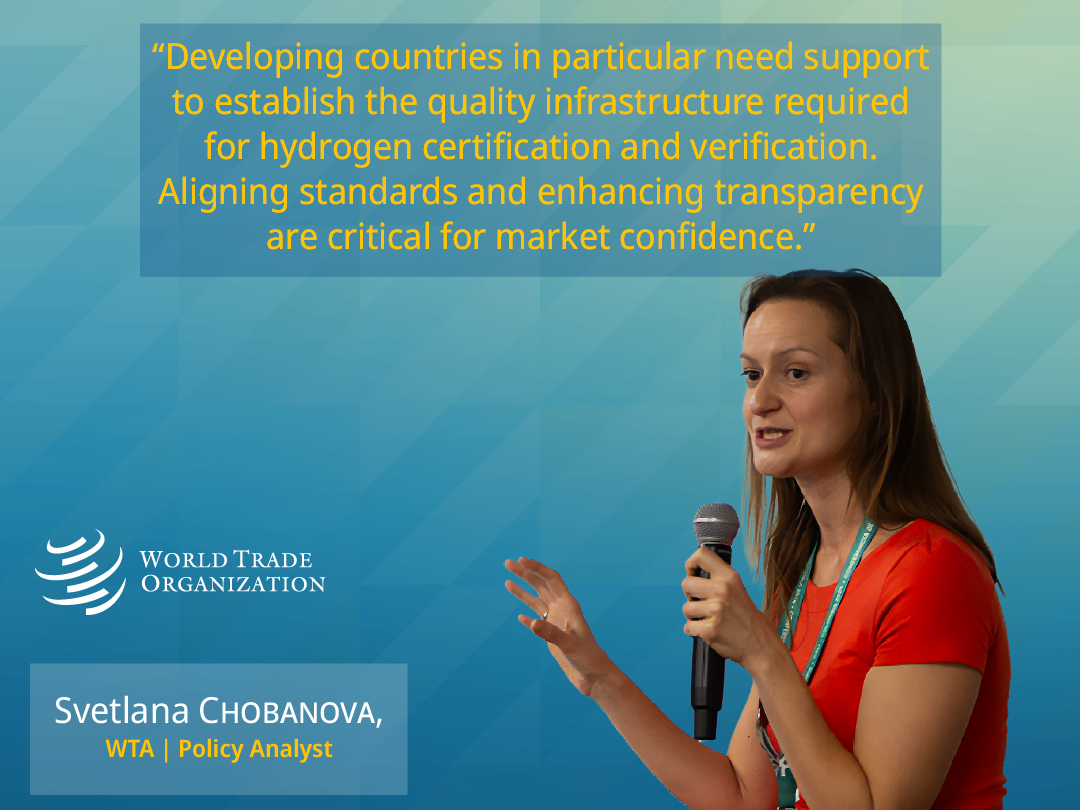
Svetlana Chobanova, Legal Officer at the WTO Secretariat, outlined the policy and regulatory enablers needed to facilitate global hydrogen trade.
She highlighted five key areas:
- Standards and certification: Aligning methodologies and life-cycle emissions accounting to enable interoperability and mutual recognition of schemes;
- Government procurement and support: Leveraging subsidies, quotas, and fiscal tools to stimulate demand for green hydrogen;
- Tariffs and trade facilitation: Developing distinct tariff classifications for renewable hydrogen and derivatives;
- Carbon pricing mechanisms: Harmonising emissions trading and carbon taxation to level the playing field;
- International cooperation: Strengthening global coordination and capacity-building to help developing countries join hydrogen trade networks.
“Developing countries in particular need support to establish the quality infrastructure required for hydrogen certification and verification,” she noted. “Aligning standards and enhancing transparency are critical for market confidence.”
Regional Perspective: MED•GEM’s Contribution
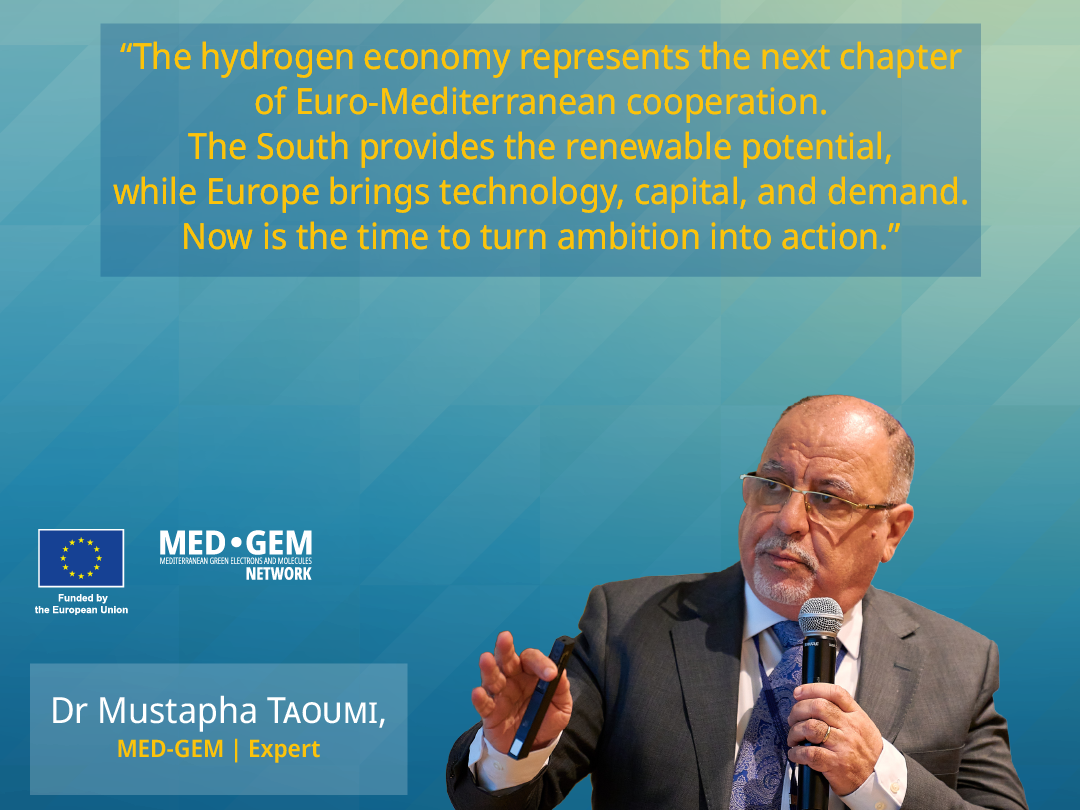
Dr. Mustapha Taoumi, deputy team leader of the MED•GEM Network, provided a regional perspective focused on the Southern Mediterranean’s readiness to become a major supplier of renewable hydrogen to Europe.
He highlighted that North Africa could supply up to 18% of Europe’s hydrogen demand by 2050, backed by exceptional solar and wind potential and existing gas infrastructure such as the Maghreb–Europe and TransMed pipelines.
Dr. Taoumi showcased national strategies from Morocco, Egypt, Tunisia, and Algeria, all advancing ambitious hydrogen roadmaps and cross-Mediterranean corridors such as the H2Med and SoutH2 Corridor.
He identified three main priorities for enabling hydrogen trade:
- Standards and certification: Ongoing pre-certification pilots in Morocco and capacity-building efforts under the EU-funded ReH₂ Help Desk;
- Infrastructure and logistics: Repurposing existing gas pipelines and developing new port terminals for hydrogen and ammonia;
- Finance and investment: Mobilising blended finance and public-private partnerships to reduce the cost of capital and de-risk early projects.
“The hydrogen economy represents the next chapter of Euro-Mediterranean cooperation,” he concluded. “The South provides the renewable potential, while Europe brings technology, capital, and demand. Now is the time to turn ambition into action.”
Key Takeaways
- Green hydrogen and e-fuels will play a critical role in decarbonising global industries and transport.
- Harmonised certification, carbon pricing, and trade rules are essential to enable cross-border trade.
- The Southern Mediterranean region holds a strategic comparative advantage thanks to its renewable potential and proximity to Europe.
- Collaboration between governments, industry, and international organisations is key to building a trusted, transparent, and inclusive hydrogen market.
Replay and Next Steps
The recording and presentation slides of the webinar will be made available on IRENA’s Events Page.
MED•GEM Network will also share the replay across its regional communication channels to support knowledge dissemination and stakeholder engagement.

